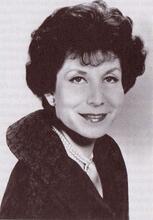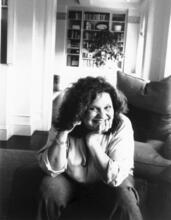Mischket Liebermann
Around age sixteen, Mischket Liebermann ran away from home and became acquainted with the workers’ movement in Berlin. Liebermann made many friends who took her along to meetings of the KPD (Communist Party of Germany) and the club for Jewish workers. At eighteen, she decided to become an actress. After several appearances at Party events, Heinz Hilpert engaged her to play a Romanian Jewish woman in Scholem Asch’s Bronx Express. In 1927, she performed with Jewish State Theater in Minsk, where she appeared most successfully as Mother Möller in Ernst Toller’s Hoppla. During the war, Liebermann became responsible for the political education of German prisoners of war. After 1945 she returned to Berlin and participated in the cultural reconstruction of East Germany.
Early Life and Family
Born on November 18, 1905, Mischket Liebermann was the fifth of eight children in a poor family that lived in the Galician (Yiddish) Small-town Jewish community in Eastern Europe.shtetl of Tytschin (Tyczyn), which had two synagogues. The one that had a golden dome was where the rich prayed, while the old ramshackle one served the poor. This was where her father, Pinchus Elieeser Liebermann, served as rabbi. Fearing pogroms, the family fled to Berlin in 1914. Here, living in the slum Scheunenviertel, her father soon gathered an orthodox congregation around him and established a synagogue in the Grenadierstrasse. As his daughter lovingly describes him, he was in constant movement, a one-man service combination, who cared for his flock from the cradle to the grave, as mohel (circumciser) and Lit. "son of the commandment." A boy who has reached legal-religious maturity and is now obligated to fulfill the commandmentsBar Mitzvah teacher, as celebrant at weddings, as a dayan granting a divorce, as leader of prayers and as a judge in the ghetto.
Determined to keep his children from assimilating, her father even forbade them to speak German at home. Although Mischket loved her father dearly, she feared his religious fanaticism and the fact that she might, like her sisters, be compelled to marry a man of his choice. (One of her sisters had a nervous breakdown that required psychiatric treatment. Hospitalized in Berlin-Herzberg, she was murdered in the framework of the Nazi Euthanasia Program.) When still not quite sixteen years old, Mischket ran away from home. It was at this point that she became acquainted with the workers’ movement. In 1921 she attended the memorial demonstration for the murdered socialists, Rosa Luxemburg and Karl Liebknecht, at the Alexanderplatz, which made a profound impression on her. Unencumbered by family, Mischket Liebermann made many friends who, living as communists and in “wild marriages,” were as much social outsiders as herself. They took her along to meetings of the KPD (Communist Party of Germany), the Rote Hilfe (Red Aid), and the club for Jewish workers. She soon gave up her office job at Honig and Co.
Acting Career
At the age of eighteen, she decided that she would become an actress. From her school years on, she had been fascinated by Alexander Moissi, Elisabeth Bergner, Fritz Korner, and Alexander Granach, whom she had seen in illicit visits to the theater. It was Granach who, in 1923, arranged for her to receive acting lessons from Heinz Goldberg. After several appearances at Party events, Heinz Hilpert engaged her to play a Romanian Jewish woman in Scholem Asch’s Bronx Express. In 1925 she became a lifelong member of the KPD. While on vacation in the Soviet Union in 1927 she was engaged by the Jewish State Theater in Minsk, where she appeared most successfully as Mother Möller in Ernst Toller’s Hoppla, as well as in other plays.
After 1933 Mischket Liebermann participated in “Kunst im Klub,” which catered primarily to German emigrés, and then joined the German-language Kolchos Theater, first as an actress, then as stage director. Under the leadership of Maxim Vallentin this group comprised mainly refugees from Germany, such as Curt Trepte (later a theater and film producer in the GDF [East Germany]), Germann Greid of the Düsseldorf Schauspielhaus, Amy Frank and Friedrich Richter, both members of the Truppe im Westen (Company in the West) founded by Greid in 1930. The repertory of this traveling company included Heinrich von Kleist’s The Broken Jug and Anton Chekhov’s The Proposal. When the company dispersed, Mischket Liebermann left the theater and during the war became responsible for the political education of German prisoners of war. After 1945 she returned to Berlin and participated in the cultural reconstruction of East Germany.
Selected Works by Mischket Liebermann
Aus dem Ghetto im die Welt. Rabbitochter. Schauspielerin. Politruk. Arbeit unter deutschen Kriegsgefangenen. Berlin (GDR): 1977.
Lixl-Purcell, Andreas, ed. Erinnerungen deutsch-jüdischer Frauen 1900–1990. Leipzig: 1992, 126–143.
Lexikon Jüdische Frauen. Edited by Jutta Dick and Marina Sassenberg.












